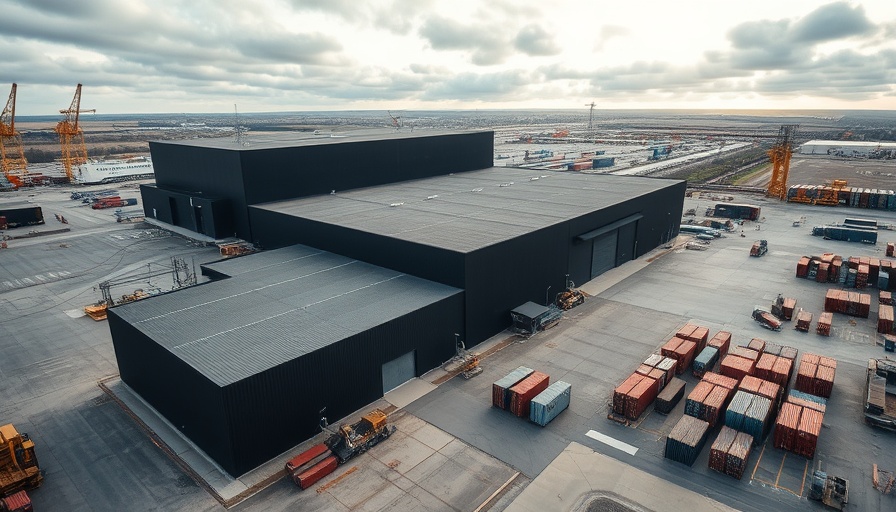
Reviving Espanola: Harnessing the Power of Biochar
Espanola, a small town in Northern Ontario, once known for its pulp and paper industry, is on the brink of renewal, thanks to innovative advancements in clean technology. CHAR Technologies has revealed plans to establish a renewable natural gas and bio-coal production facility at the site of the former Espanola mill, a move that could not only breathe new life into the local economy but also help set a precedent for sustainable industrial practices.
From Paper to Bioenergy: The Shift in Industry
The closure of the Espanola pulp and paper mill left a significant void in the community, prompting the need for alternative solutions to rejuvenate the local job market. As the North American forest products sector contracts, the need for sustainable practices grows, and biochar emerges as a promising avenue. Biochar, produced through the pyrolysis of wood waste, not only repurposes unused material but also contributes to reducing greenhouse gas emissions—an essential factor for a greener future.
Collaborative Vision: CHAR and BMI Group
In a strategic partnership, CHAR Technologies and the BMI Group are poised to transform the Espanola landscape with investments aimed at technological innovation. The $2-million investment from BMI will assist CHAR in fast-tracking the development of their Thorold facility, which is already underway. The companies’ collaboration represents a forward-thinking model in which local resources are utilized to foster a new, sustainable energy economy.
Potential Economic Impact: New Jobs on the Horizon
The anticipated establishment of the Bioveld North facility at the former mill site could revitalize Espanola by creating numerous job opportunities in renewable energy. As CHAR CEO Andrew White noted, this collaboration opens the door for future capital investments, potentially enabling a larger pipeline of developments throughout Northern Ontario. With engineering work slated to begin this summer, local residents are cautiously optimistic about the prospects of a renewed economy.
Supporting Local Communities: Beyond Just Espanola
This initiative is not only pivotal for Espanola; it's also part of a broader movement toward sustainable industrial practices across the Great Lakes region. CHAR's strategy focuses on utilizing organic waste material, demonstrating a commitment to addressing environmental concerns while enhancing economic opportunities in neighboring regions. These efforts reflect a growing trend among businesses to seek sustainable solutions while avoiding the pitfalls of previous industrial practices.
Future Insights: What Lies Ahead for Biochar Production
While the future looks bright for Espanola and the bioenergy sector, challenges remain. Local environmental regulations, public perception of biochar technologies, and the economic landscape must align for a successful transition into this new industrial phase. How quickly these hurdles can be overcome will significantly impact the overall success of the Bioveld North initiative.
Conclusion
The revival of the Espanola mill site as a production hub for renewable natural gas and bio-coal could set the stage for a broader industrial shift toward sustainability in Northern Ontario. As the project gains momentum, it will serve as a model for similar initiatives, potentially leading to a greener, more resilient economy. The community’s hope is palpable, driven by the promise of new jobs and revitalized local industry.
 Add Row
Add Row  Add
Add 




 Add Row
Add Row  Add
Add 

Write A Comment